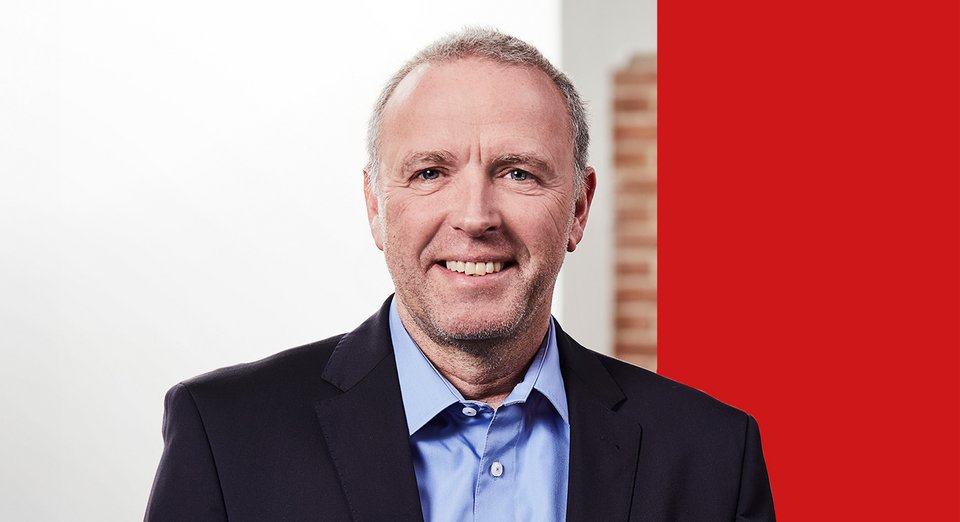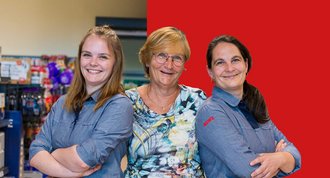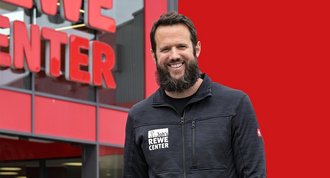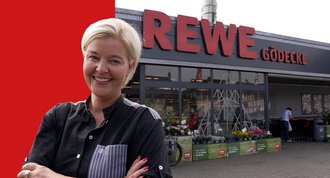
They are more popular than ever, although many people don't really know what a cooperative actually is. Expert Dr Johannes Blome-Drees therefore calls for cooperatives to be part of the curriculum! A conversation about major social issues.
one: Mr Blome-Drees, the last time we talked about cooperatives was more than five years ago. A lot has certainly happened since then.
Johannes Blome-Drees: Around 40 per cent of all the approximately 7,800 cooperatives that currently exist in Germany have been founded in the last two decades, and in the last three years alone we have had over 900 new start-ups. I am pleased that these co-operatives were not founded in traditional sectors, if you exclude the housing sector. New cooperatives are being founded primarily in the areas of regional development and local services of general interest, energy, health and social affairs, as well as co-operations between small and medium-sized enterprises.
one: Can you give us a few examples?
Blome-Drees: We are currently conducting case studies on start-ups from civil society in Cologne, for example a supermarket start-up called Köllektiv eG. There is now also a climate protection cooperative in Cologne called "heuteStadtmorgen eG". Or a techno club, Krakeele eG. There are other exciting projects in the areas of community energy, community-supported agriculture, senior citizens' cooperatives and platform cooperatives, which often focus on cooperative business for the common good. A whole range of interesting business models have now also developed in the care sector.
one: Are there other areas of life in which cooperatives are making inroads?
Blome-Drees : There are numerous start-ups in new fields of activity: in the leisure sector, in education, in the cultural sector or in the mobility sector. A student is currently writing a bachelor's thesis on mobility cooperatives.
one: In a nutshell, these are car pools?
Blome-Drees: It starts with car-sharing projects run by energy cooperatives. But there are also mobility cooperatives run by and for students or community buses. We are talking here about infrastructure cooperatives that serve to maintain and control existing private and municipal structures.
So wherever a private service is cut back or a municipal service can no longer be provided, people join forces to maintain these services.
one: How do you explain this development? Do crisis phenomena favour the emergence of cooperatives?
Blome-Drees: Co-operatives have always been crisis winners. If we look at the founding of industrial-era co-operatives, it was the social issue that drove the pioneers. That really was an innovation. Today, we are in a constant crisis mode. In this respect, it is not surprising that other management principles are being considered alongside the state and the market. And then you come to the co-operative with its principle of voluntary agreement.
one: Why should founders choose the legal form of a cooperative?
Blome-Drees: First of all, the co-operative is the only purpose-bound legal form in German company law. It is needs-orientated and not profit-orientated. Co-operatives are democratically constituted demand-driven economies. We know that founders choose the co-operative because they want to operate democratically. Co-operatives are opportunities for those who participate. They only work if people participate in the co-operative. At least three people are needed to set up a co-operative. They need the will and the willingness to work together democratically. It is a matter of direct performance-based promotion. And personal liability is limited to the capital paid in. Co-operatives are not about self-interest before the common good, nor about the common good before self-interest. It is about self-interest in the common good. Co-operatives are benefit communities and not redistribution communities.

„Co-operatives are schools of democracy, as all members have an equal say in fundamental decisions.“ Dr Johannes Blome-Drees

one: Are cooperatives more sustainable than other forms of business?
Blome-Drees: I am firmly convinced that the co-operative legal and economic form is predestined to operate sustainably. This can be seen from the fact that co-operatives are over-generative. They are passed on from generation to generation. The co-operatives of the industrial era, if they still exist today, are over 175 years old and are a very strong indication of economically sustainable business practices. When you join the co-operative, you pay in nominal capital. When you leave, you get back the capital you paid in. What is earned during this time remains in the cooperative. Co-operative reserves form a kind of endowment capital for future generations of members. There is also a cultural core that has not changed to this day: Democracy, solidarity, subsidiarity, people-orientation, altruism. Not-for-profit means that the co-operative does not put its own interests first, but the interests of its members. However, cooperatives are not sustainable or charitable per se. We need people in the co-operatives who implement these ideas, take them seriously and charge them with meaning.
one: What role do co-operatives play in promoting local economies and social justice?
Blome-Drees: Co-operatives enable their members to act locally on their own responsibility. They are local and regional nuclei with which economic, social and ecological crises, which often have their causes in large-scale or even global developments and contexts , can be countered. Co-operatives are small answers to big social questions.
one: Do you see any differences for employees depending on whether they work in a cooperative like REWE or in a stock corporation?
Blome-Drees: I don't see any difference. There may be differences, but they don't derive from the co-operative. The exceptions are production co-operatives where the employees are also the owners.
one: How can cooperatives compete with capital-orientated companies?
Blome-Drees : The success of cooperatives over the centuries is based on the fact that they are people-orientated and not capital-orientated. Co-operatives draw their strength from locality and direct experience. They are founded in very specific circumstances in order to meet the very specific needs of their members. Of course, we also have large, international players, but most cooperatives have regional and local business districts in which they operate for their members. That makes them strong.
one: Do you see any advantages for cooperatively structured retail companies compared to other forms, such as the AG?
Blome-Drees: I actually believe that what makes cooperatives like REWE and Edeka strong is their hybridity. They combine two seemingly incompatible characteristics: size and smallness. Cooperatives are self-help organisations with established business operations. Central Business Administration functions are transferred from the member companies to a jointly established business operation, while the members operate independently on site. This independence is a major advantage. Only the members can decide locally what is best to do.
one: How does the management of a cooperative manage to keep the members' enthusiasm alive?
Blome-Drees: Cooperative entrepreneurship is characterised by the fact that there are people who are convinced of the cooperative idea and who take this as the benchmark for their entrepreneurial activities. Co-operative management is joint, economically sustainable management, which can be seen very clearly from the lowest insolvency rate by far in Germany. There are many reasons for this: the co-operation within the cooperative economy, the advisory and support services provided by the cooperative associations, especially in the start-up sector. There may be fewer start-ups. But the ones that are founded have undergone a foundation audit.
one: Would you say that co-operatives are a trend among young people?
Blome-Drees: I wouldn't say that in general. But we have a large influx of students here at the university, which is much greater than in the past. There is great interest in an alternative way of doing business.
one:FC St. Pauli and Schalke have founded cooperatives, breaking new ground in professional football. What do you think of the idea of turning club members into co-operatives?
Blome-Drees: The co-operative is participatory, it is democratic, it is transparent in terms of capital injection and it is independent. At Schalke, only club members can become co-operatives. At Sankt Pauli, they have opened it up to everyone. These members are supposed to have a stake in the stadium, and they are promised a payout. But they are also talking about an emotional return, which should be at the centre of the Football Cooperative Sankt Pauli: Together with you, we want to show that different financing is possible - for you and for us. For everyone who believes in a different kind of football. At Schalke, this form of financing via the members serves to reduce debt.
one: With regard to federal politics: what wishes do you have for the new federal government? In your opinion, what framework conditions need to be adapted or changed in favour of cooperatives?
Blome-Drees: Co-operatives don't want to be favoured, but they don't want to be disadvantaged either. If you think about start-up financing, for example, you realise that the public funding programmes are unsuitable for cooperative start-ups. Start-up financing is something that really needs to be improved. Another point is the knowledge problem in society. Many people think co-operatives are good, but they don't know what co-operatives are. And many founders are also unaware of this legal form, as are start-up advisors, the liberal professions, lawyers, auditors, tax advisors and management consultants. We need to start in the education sector, especially at universities. Lawyers also complain about this. Outside the associations, there are only a handful of lawyers in Germany who really deal with co-operatives.
one: Mr Blome-Drees, thank you very much for talking to us.

The United Nations has proclaimed 2025 as the International Year of Co-operatives. The aim is to draw attention to the global importance of cooperatives for achieving the 17 Sustainable Development Goals of the international community. Under the motto "Cooperatives Build a Better World", the importance of cooperatives for economic and social development in countries is to be emphasised. According to the UN, there are around one billion co-operative members in over 100 countries. In his welcome address to the international cooperative community, UN Secretary-General António Guterres emphasised: "Cooperatives are the solution to many of the global challenges of our time. They make a decisive contribution to achieving the sustainable development goals of the global community. They promote regional entrepreneurship, provide access to markets and combat poverty and social exclusion worldwide. Co-operatives are shaping a better world."














